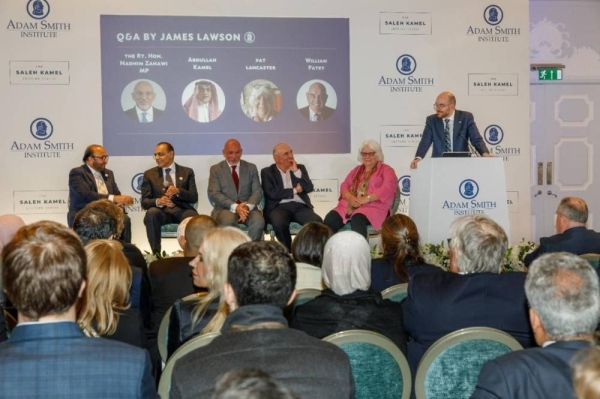
The Evening Economy (EE) is increasingly capturing the attention of researchers, policymakers, private business, public agencies, the media and the wider community. The UK’s EE alone supports 1.3 million jobs and creates $100 billion per year in revenue. The EE accounts for 10-16 percent of town center jobs in Sydney. New York’s EE supports around 300,000 employees.
Last week, the Saudi Council of Ministers endorsed the regulation to grant the private sector the right to extend business hours to 24 hours. This will have a positive impact on the economy by increasing employment opportunities, consumption and disposable income, and allowing new small and medium enterprises (SMEs), especially restaurants and retail operators, to participate in evening hours.
Due to the recent deregulation of business hours, there will be 45,000 direct jobs created in the restaurant and retail sectors, and 20,000 indirect jobs created, over the short to medium term. An estimated 30,000 part-time jobs could be established. Female and youth employment could also be encouraged over time. Female unemployment is still high at
31.7 percent but is down from the fourth quarter of 2018.
Cities do not have to expand higher and lower, they can grow in the use of time. Expanding night time creates jobs and supports social inclusion.
John Sfakianakis
SMEs could see an uptick in business activity by 6-8 percent, and an increase of 5-6 percent in terms of new establishments. Restaurants could see an increase in 7-9 percent of their annual business turnover, which could translate to SR68 billion ($18 billion).
Total non-oil gross domestic product (GDP) would amount to an increase of 0.4-0.5 percent of additional value added over the next three years. In terms of gross value added, it translates to SR90-100 billion per annum. The impact on tourism GDP would amount to an increase of 2.4 percent. The entertainment sector could see an increase of 4 percentage points in value-added terms.
Deregulated business hours is the direction that most developed economies worldwide are taking. The effects of deregulating business hours are unequivocally positive on the overall economy.
Deregulation will have a negligible effect on inflation on average prices throughout the economy, even as more recently the food and beverage sector has seen prices rise by
1.1 percent. International agricultural prices have been rising in conjunction with an uptick in some local food items.
Throughout history, towns and cities have had some manifestation of an economy that operates in the evening and at night. In ancient Greece (and probably before), people traded objects and services beyond the end of the commonly understood working day. In Asia, night markets selling domestic goods, medicines and food have existed for thousands of years.
But in the 21st-century leisure or post-industrial age, the transactional nature of the evening and night has appeared to grow in importance to the functioning of towns and cities. So while not having the same weight of economic contribution as daytime activity, what happens “after dark” has greater strategic interest than ever before.
This makes the importance of measuring the location, makeup and economic significance of the EE relevant to a range of policymakers and planners. This is particularly true in Western and Western-influenced nations, where regenerated post-industrial areas have developed a strong focus on leisure consumption linked to the rise of complimentary changes such as the increase in city-center living, agglomeration of industries attracting mobile young professionals in the new economies and the rise of urban tourism.
The many potential benefits of a vibrant EE have been underemphasized. There have been no studies of the wellbeing and mental health benefits that may come from enjoying a city’s EE provision.
With Vision 2030 targets to raise female participation rates, working hours in the retail sector gain extra significance. Youth unemployment and part-time employment would also be supported over time.
Businesses are expected to extend their working day by an average of three hours. This should give people more opportunities to shop in the evening. Unlike other countries, Saudi Arabia’s peak hours tend to center around the late evening window (around 9 p.m.) for climate and social reasons.
According to the UN, by 2050 more than 80 percent of the world’s population will live in urban areas. This can be seen as a challenge or an opportunity. To feed and house people, cities will have to create more on the same land. Cities do not have to expand higher and lower, they can grow in the use of time. Expanding night time creates jobs and supports social inclusion.







